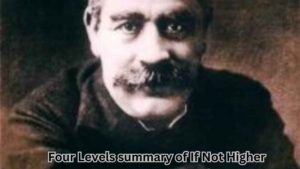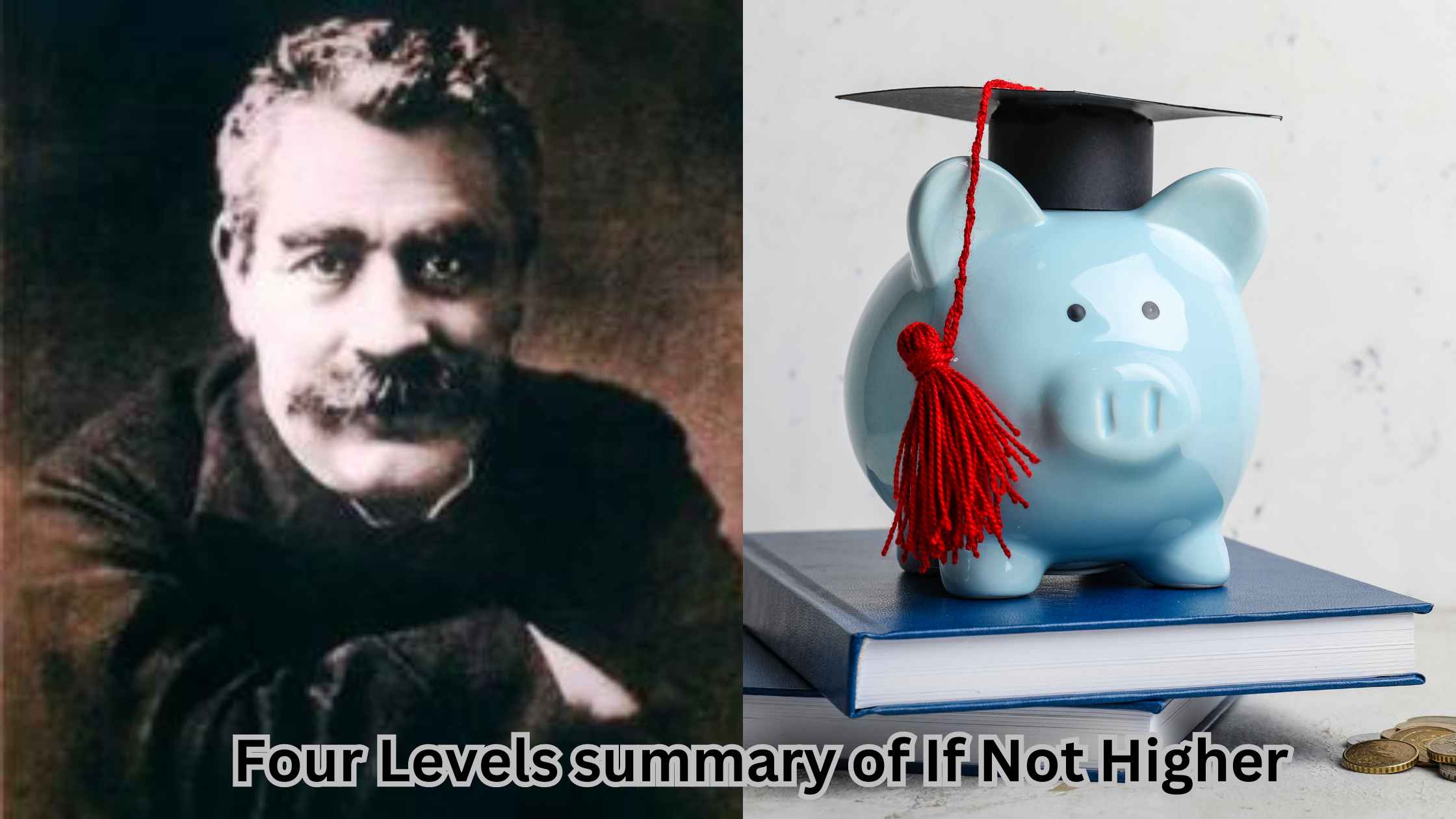If Not Higher – Four Level Summary
Welcome to our blog of “If Not Higher.” In this discussion, we’ll delve into the significance and interpretation of this phrase, examining its possible meanings and implications. Whether you’ve encountered this expression in literature, philosophy, or everyday conversation, or if you’re curious about its origins and usage, this article aims to shed light on its various contexts. Join us as we uncover the potential interpretations of “If Not Higher” and explore how it reflects different perspectives and beliefs across different disciplines and cultures. Let’s embark on a journey to understand the depth and significance of this intriguing phrase.
Literal Comprehension of If Not Higher:
Once Litvak wanted to know where the rabbi of Nemeroc went at the time of penitential prayers Every Friday morning. He did not believe that the rabbi went to heaven as supposed by other people. To check on the rabbi, he went to the rabbi’s room secretly on Thursday evening and spent the night lying under his bed. In the morning the rabbi woke up and went to the nearby forest disguising himself as a farmer. The Litvak followed him and watched everything.

The Rabbi cut down a tree and carrying the wood on his back, he went to a poor sick woman’s house. He sold her the wood on credit. And put it into the oven. Then he resisted the first portion of the prayer. As he kindled the fire he resisted the second portion more happily. When the fire was ready he resisted the third portion. Seeing all this the Litvak becomes the Rabbi’s disciple. And later when people asked him where the Rabbi went at the time of prayer, he would reply quickly that he went to heaven certainly although he did not go higher than that.
Read More: The Brave Little Parrot – Four Levels | Flax Golden Tales | BBA, BBA-TT, BBS
Interpretation of If Not Higher:
This story might be trying to tell us that to worship humanity is to worship god. So the Rabbi went to the sick woman’s house to help her instead of going to the praying house. By serving her the Rabbi worships god. This story may also be interpreted to mean that the best way to give advice is to set a good example. Instead of telling people to serve the poor and the helpless, the Rabbi first served, and then he resisted the prayer.
Critical Thinking of If Not Higher:
An orthodox may ask so many questions about this beautiful story. Can a man go to heaven in his lifetime? Will a Rabbi work at the time of prayer? Should he not go to the praying house? A man feels satisfied if he can help the people in trouble and dissatisfaction is heavenly pleasure.
Read also: Four Levels Perfect – Yudhishthira’s Wisdom
Assimilation of If Not Higher:
When I read this story I remember Devkota’s poem “Yatri”. In the poem, the speaker requests the traveler to go to the poor and the suffering people. If their wounds are healed, the traveler will be happy. We can’t see god on earth but we can see him in the form of man. Therefore those who serve human beings in trouble serve god best.
FAQ IF NOT HIGHER
If Not Higher Question and Answers
QN-1 What is the moral of if not higher?
Ans: The moral tale “If Not Higher” teaches us the right path to heaven. It also emphasizes social service, where labor is treated as devotion. If we put work before worship and love and assist those who are in need, we can reach true happiness. Acts of goodness are always rewarded.
QN-2 What is the theme of If Not Higher by Peretz?
Ans: The moral of the short story “If Not Higher” by I.L. Peretz is that it is more important to be happy with the life one already has than to always be looking for something that seems to be an improvement.
Qn-3 Who wrote if not higher?
Ans: Sholom Secunda’s If Not Higher is a musical dramatization of one of Isaac Leyb Peretz’s most famous short stories, “Oyb nit nokh hekher.” This story also forms the basis for an otherwise unrelated cantata in Yiddish by Maurice Rauch, which appears in its entirety in Volume 12.
Qn-4 Is Litvak a critical thinker?
Ans:Explanation: Since Litvak is a critical thinker he does not take his skepticism too far as he believes in the concept of Rabbi. Regardless of being unsatisfied with worldly things. He does not have the habit of quickly believing people and things, especially what others say.

